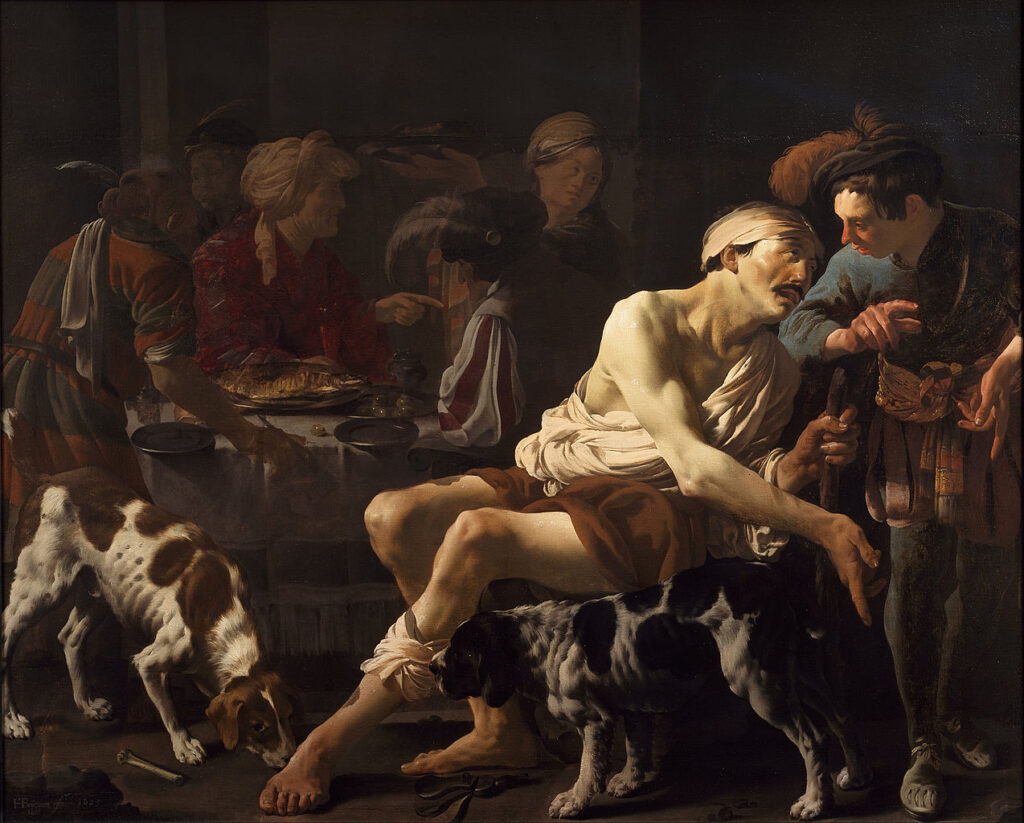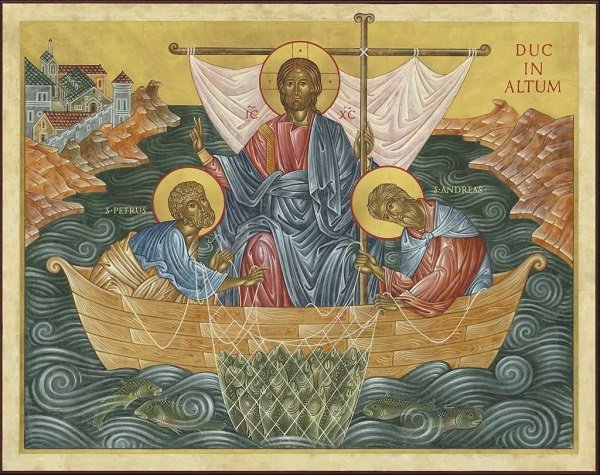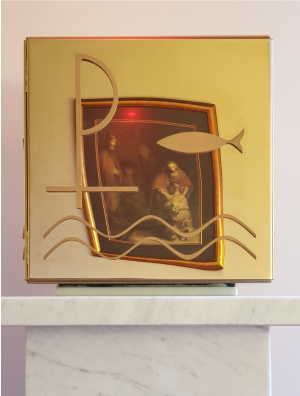“If they do not listen to Moses and the Prophets, neither will they be convinced if someone should rise from the dead.”
—Luke 16:31
There is something rather alarming about this passage. It suggests a kind of blindness in the human heart so stubborn that even a miracle—one as dramatic as resurrection itself—would fail to open its eyes. It is not simply a matter of insufficient evidence, nor even of a lack of opportunity. The problem, it seems, is much deeper: a refusal to see, a deafness to the voice of truth even when it speaks plainly.
This is the warning at the heart of the parable of Lazarus and the Rich Man. We find two men: one clothed in splendour, feasting sumptuously, insulated from the cries of the poor. The other, a beggar, covered in sores, lying at the rich man’s gate. Yet when the scene shifts beyond the grave, we see their fortunes utterly reversed. The rich man, now tormented in the flames of Hades, pleads for a drop of water, while Lazarus is comforted in the bosom of Abraham.
At this point, one might expect some grand lesson on justice, a simple moral about the dangers of wealth and the virtue of poverty. But the parable does not end there. The rich man, realising that his fate is sealed, turns his concern towards his family. “Send Lazarus to warn them,” he begs, “so that they may not come to this place of torment.” But the answer he receives is chilling: “They have Moses and the Prophets; let them listen to them.” And when he protests—when he insists that a messenger from the dead would surely convince them—the reply is firm: if they will not listen to Moses and the Prophets, they will not be convinced even by a man rising from the dead.
Here we arrive at the heart of the matter. The problem is not that God has failed to provide enough revelation, but that man, left to his own devices, refuses to accept it.
The Question of Grace and Free Will
There is, of course, a deeper question lurking beneath the surface: if the human heart is so blind, how can it ever see? If it is so deaf, what hope is there that it will ever hear? The Christian answer has always been this: left to ourselves, we would indeed remain in darkness, but we are not left to ourselves.
Grace—the mysterious, unearned action of God upon the soul—must always come first. Before a man can turn to God, before he can even desire to turn to God, something must stir within him. It is no good thinking that we, by our own effort, can simply wake ourselves from the sleep of sin. If we are to rise at all, it must be because we have first been roused.
But here we come to a paradox, for although grace must come first, man is not reduced to a mere puppet. His will, though wounded, remains his own. Grace does not override his freedom; rather, it makes true freedom possible. One might think of a man drowning in the sea, unable to swim. He cannot rescue himself—this much is clear—but if another throws him a rope, he must at least take hold of it. The rope does not lessen his freedom; it enables him to be saved.
This is the great mystery of salvation. God always acts first, but He does not act alone. He calls, but we must answer. He reaches out, but we must grasp His hand. This is why Scripture is full of commands to repent, to believe, to choose life rather than death. And it is why, in the parable, Abraham does not say that the rich man’s brothers cannot believe—only that they will not.
The Fatalism of Calvin
It is worth pausing, for a moment, to consider how others have understood this question. John Calvin, for instance, took the idea of divine grace and carried it to a rather grim conclusion. According to him, salvation is not only initiated by God but determined entirely by Him. Man’s will is not merely weakened by sin; it is altogether irrelevant. Before the world began, God irrevocably decreed who would be saved and who would be damned, and no human decision can alter that decree.
This idea—sometimes called unconditional election—may seem, at first glance, to honour the sovereignty of God. But it does so at the expense of man’s dignity. It is not simply that grace comes first (which is true); it is that grace acts alone, making the human will redundant. Salvation, in this view, is not a partnership but a preordained mechanism.
This does not sit well with the teaching of Christ. The parables are full of invitations: Come to the feast! Take up your cross! Follow me! Such language makes no sense if man’s response does not truly matter. When Christ weeps over Jerusalem, lamenting that its people “would not come to him,” is He merely playing out a scene that was scripted in advance? Surely not.
The Catholic view, by contrast, holds both truths together. Yes, God is the initiator of all things; His grace is indispensable. But man’s freedom is real. He is not a stone, moved without will; nor a machine, programmed without choice. He is a creature made in the image of God, capable—however weakly—of responding to the divine call.
The Danger of Waiting for a Sign
This, then, is why the rich man’s request in the parable is so misguided. He thinks that a great miracle—a dead man returning to life—would surely compel belief. But faith does not work that way. Evidence alone is never enough. A man who does not want to believe will always find reasons not to.
The Pharisees, after all, saw Christ’s miracles with their own eyes, yet they rejected Him. The Israelites in the wilderness beheld the Red Sea part before them, yet they grumbled and disobeyed. And in the ultimate fulfilment of this parable, Christ Himself did rise from the dead, yet many refused to accept Him.
The truth is that God has already given us all we need. He has spoken through the Law and the Prophets. He has spoken through His Son. The question is not whether He has spoken clearly enough; it is whether we are willing to listen.



